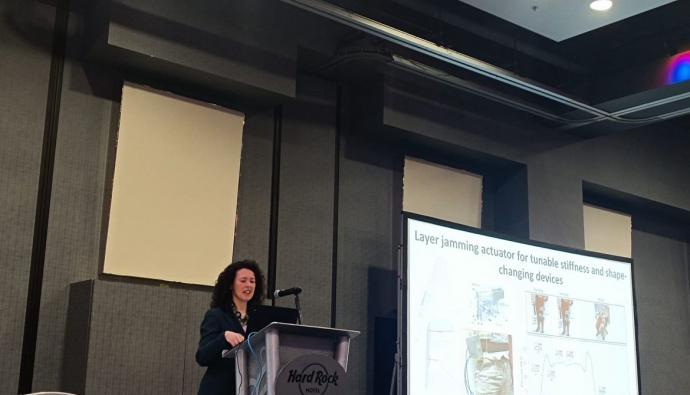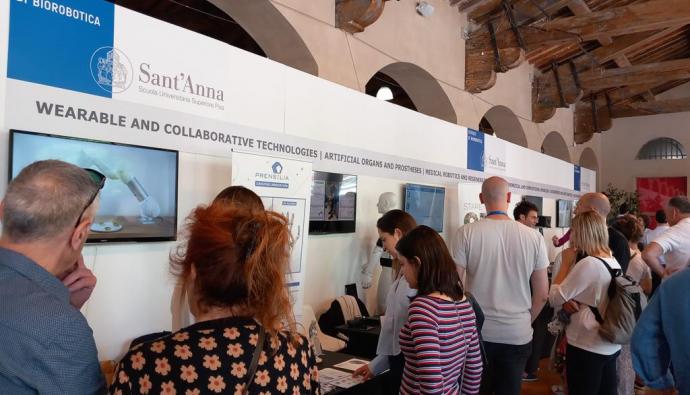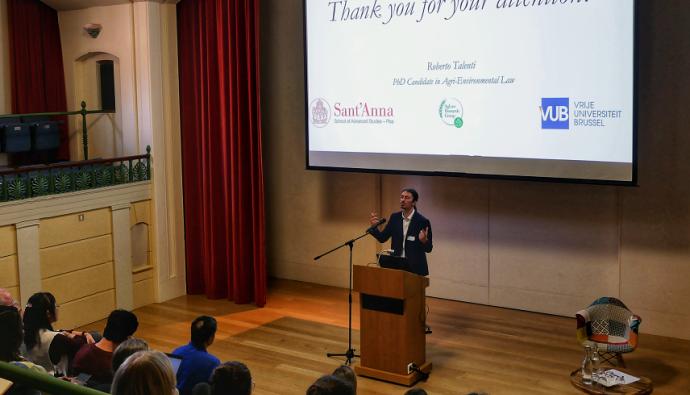IodiNE-RICH FOODS TO ELIMINATE IODINE DEFICIENCY AND PREVENT RELATED DISEASES: RECTOR PERATA GIVES HIS OPENING SPEECH AT THE “World Iodine Association” INTERNATIONAL CONFERENCE IN PISA ON NOVEMBER 15-17

The World Iodine Association (WIA) conference in Italy will be held in Pisa on November 15-17. Sant’Anna School participates as a scientific partner in this first WIA international conference on “Iodine in Food Systems to Prevent Iodine Deficiency Related Diseases” which brings together scientists and stakeholders to discuss how variations in the earth’s supply of iodine affect human and animal health. Over the past 80 years the World Health Organization has been committed to the elimination of iodine deficiency, to increasing the intake of iodine-rich foods and preventing diseases associated with iodine deficiency. A deficiency of iodine can have serious effect on health. Iodine is responsible for regulating thyroid function and a healthy metabolism. According to the WHO, the iodine deficiency is one of the causes of mental retardation, decreased fertility, stillbirths and child mortality.
Professor Pierdomenico Perata, rector of Sant’Anna School and coordinator of the Institute of Life Sciences PlantLab, will give his welcome speech to conference participants on Wednesday, November 15, at 4.30 pm in Domus Comeliana, via Cardinale Maffi, 48 – Pisa. His research focused on plant hormone physiology and the role of iodine-rich foods to prevent deficiencies. “This conference on iodine in food systems – said Pierdomenico Perata – give us the opportunity to increase our understanding on iodine deficiency and how variations in the soil’s supply of iodine can affect human and animal health. In addition to it, we will explore how the latest research on iodine-rich foods can impact on human health development in EU and third world countries”.
Due to the high prevalence of iodine deficiencies globally and health concerns as a consequence, there is much more emphasis in the health and policy makers community on adding more iodine into the person’s diet. Agronomic bio-fortification to develop cereal genotypes with grains denser in Zn and Fe, salt iodization and supplementation of animal feed with iodine provide additional opportunities for improving the human health as iodine deficiency in human beings generally occurs in the regions where soils have Fe deficiency problem and cereals are the major source of daily calorie intake.
In that regard, Attilio Caligiani, World Iodine Association director general, said: “In some European countries (Italy, France, Denmark and Ireland) there is also evidence of moderate iodine deficiency. Salt iodization is a method of supplying iodine to populations, although bio-fortification of food and staple crops provides an effective option to reach the entire population”.
“As an association of experts in iodine nutrition, our mission is to promote public awareness of the importance of iodine in the diet, to ensure the best iodine nutrition in all sectors of the EU and Italy population and prevent iodine deficiency disorders. We need to provide evidence-based advice on nutrition and supplemental sources of iodine on public institutions appropriate means as an integral part of the Health 2020 European Health Policy framework and to implement a new strategy after 2020”.
Click here to view the World Iodine Association (WIA) international conference program.



